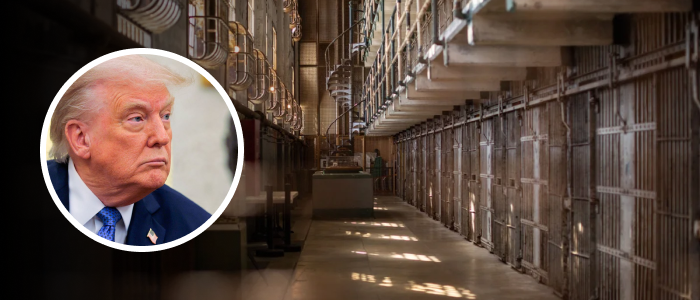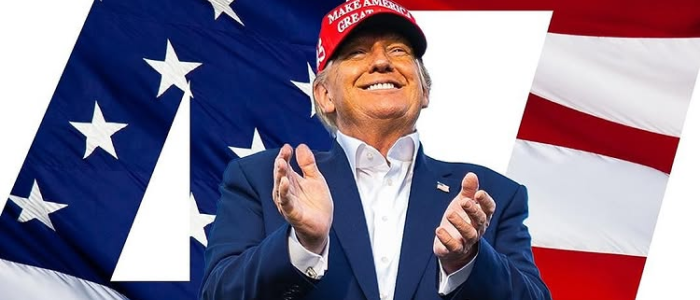There is much to recommend Panduleni Itula’s principled refusal to take up the role of Leader of the Official Opposition (LOO) because of its perceived legal uncertainty.Of less purchase, however, is his analysis on why the role is constitutionally suspect. The question in this debate is whether there is a place under our written Constitution for unwritten parliamentary conventions.
If the answer is yes, Itula’s analysis is conclusive.If no, his analysis is incomplete and wrong insofar as it makes short shrift of the role of parliamentary conventions as a possible source of the LOO. The written rules of parliament aside, the LOO is a creature of parliamentary convention, rooted in parliament’s autonomy to adopt and adhere to conventions to help guide its own process.

While not legally enforceable, conventions have institutional and operative force.Their role in ensuring the smooth functioning of parliament and furthering the principles which underpin the Constitution also makes it likely that they will be viewed by the courts as constitutional. WRITTEN CONSTITUTION, UNWRITTEN CONVENTIONS Our Constitution codifies the rules underpinning the democratic architecture and structure of the government.
It establishes the organs of state, specifies their composition and spells out the powers and duties attaching to each officeholder.Itula is right to point out that an office not specifically mentioned in the Constitution lacks explicit constitutional status. But what about an office which is either implied by, or could be inferred from, another rule in the Constitution? The Constitution contains broad rules which establish the parameters within which public power is to be exercised without spelling out the specifics.
I call these type of rules ‘framework rules’.This lack of detail in the Constitution is not surprising.The proper role of the Constitution is to establish the norms and duties governing public power while devolving to constitutional functionaries the responsibility of spelling out the modalities of how the relevant duties are to be discharged.
Parliamentarians (MPs) often resort to unwritten rules for the mechanics on how to discharge their constitutional functions.ACCOUNTABILITYIt is parliament’s duty to hold the executive to account.Article 41 of the Constitution requires ministers to account to parliament and article 32(2) requires the president to address parliament on the state of the nation and to respond to questions posed by MPs.
Article 59(1) leaves it to parliament to regulate its own process, which would include the way it discharges its duty of executive oversight.It does not say parliament must pass a law or write down every rule governing the oversight process, meaning parliament is free to regulate certain aspects of this process by way of unwritten conventions.In this sense, article 59(1) is a framework rule par excellence: It is the clearest basis from which arrangements agreed by MPs, which may eventually crystallise into convention, derive their practical and institutional force.
These conventions operate alongside the constitutional text, filling in the gaps between lofty constitutional ideals, such as the norm of democratic accountability, and the practicality of how to best safeguard these ideals.Conventions are, of course, subject to the Constitution, meaning they must be consistent with the Constitution to be valid.I turn now to consider why the LOO is constitutionally desirable.
THE PURPOSIVE AND NORMATIVE CASEThe practices and agreements which comprise parliamentary conventions are informed by the reality of parliamentary politics.One such reality is that in a presidential system, the president shares membership of the same political party with several MPs, often as head of the party. Some MPs also serve as ministers at the pleasure of the president.
Party affiliation and loyalty and the overlap between Cabinet and the executive gives rise to a conflict of duties among ruling party MPs, making accountability an awkward exercise.To manage this conflict, the primary role of holding government to account is located outside of the cohort of ruling party MPs, and in the hands of the party (and leader) with the second largest numerical majority in parliament. Itula is the president of the Independent Patriots for Change (IPC).
The logic of this arrangement is not hard to see. As head of the party which has a contrasting vision to the government of the day, the LOO is best placed to be the government’s heckler-in-chief by holding the executive to account, questioning policy decisions and offering alternatives. Of course, other MPs must also play this role but assigning the final responsibility to the LOO is a sure way of making sure the job gets done.
This is why this role remains a perennial feature in parliamentary systems everywhere.IT’S GOOD FOR DEMOCRACYIn the light of the political picture above, and the rules which require that the Constitution be read as a living document and in a manner that best gives effect to its purposes, the conclusion that the convention which creates the LOO is constitutionally compliant is hard to resist.Consider, for example, the office’s potential in enhancing the value of multi-party democracy, a foundational principle in article 1(1) and political pluralism in article 17 (implied by the right to form and join political parties).
The existence of an official opposition – and the recognition of its leader – gives prominence to the voices of those who did not vote for the ruling party. It underscores the idea that multi-party democracy is not a winner takes all, zero-sum system, and that the party with the second largest support is best placed to serve as the primary check on executive power, with its leader being the main functionary charged with this duty. REMUNERATION AND OTHER BENEFITSItula laments that the president, without proper authority, established the Office of the Official Opposition by proclamation (which set out the remuneration of public office bearers).
This fundamentally misconstrues the proclamation. Insofar as it mentions various public office bearers, the proclamation is not a constitutive instrument which creates these offices.Rather, it mentions them only for purposes of allocating to each a pay package to remunerate the occupant’s performance of public duties.
It takes it as read that the offices to which it refers exist factually and legally.Insofar as the LOO (and indeed the chief whip) is a creature of a constitutionally compliant parliamentary convention, the existence of these offices is hardly a presidential hallucination. Because holding government to account is a constitutional function which serves a legitimate constitutional goal and essential public good, the person primarily entrusted with this role is performing a quintessential public function.
Parity of treatment requires that the role be given the same material support accorded to other public office bearers who are similarly situated.Convincing a court to set aside the proclamation would, therefore, be a hard row to hoe.IN CONCLUSION Itula might have a point in wanting the LOO to have explicit constitutional status (like its South African counterpart).
But in insisting that it first has explicit constitutional status, he is guilty of making the best the enemy of the good.Parliamentary numbers between the ruling and other parties are at last somewhat equipoise.In this climate, legal debate and court challenges might make for good theatre but it borders on political malpractice for the IPC to do anything else other than exploit the full potential of the role of the LOO to shape democratic dialogue.
– Metumo Shilongo is a professional overthinker and Namibian citizen.The post The Constitutional Case for the Office of Leader of the Official Opposition appeared first on The Namibian..
Politics

The Constitutional Case for the Office of Leader of the Official Opposition

There is much to recommend Panduleni Itula’s principled refusal to take up the role of Leader of the Official Opposition (LOO) because of its perceived legal uncertainty. Of less purchase, however, is his analysis on why the role is constitutionally suspect. The question in this debate is whether there is a place under our written [...]The post The Constitutional Case for the Office of Leader of the Official Opposition appeared first on The Namibian.















